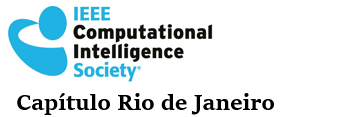
Recent advances in swarm intelligence and swarm robotics
Prof. Dr.-Ing. habil. Sanaz Mostaghim Otto von Guerick University of Magdeburg CIS Distinguished Lecturer
Sponsored by the Computational Intelligence Society under its Distinguished Lecturers Program.
Time: Sep. 22th, 2020 – 2pm (Rio de Janeiro time). Location: Online event via Zoom.
Abstract
In the past decades, we witnessed a large improvement of autonomous systems. Today, such systems are everywhere and enable us to handle complex problems in industrial and scientific applications. However, they also pose new challenges for the development of algorithms to design and control them. One challenge concerns the large amount of such systems which are able to communicate with each other and hence produce a large complex system. Looking at nature, biological systems solve complex tasks using decentralized and simple structures. In this talk, we aim to give an overview into such nature-inspired algorithms such swarm intelligence and describe their applications in autonomous systems. Swarm intelligence is a collective learning process which can lead to a self-organized system of simple individuals, which together create a global emergent behavior.
Such systems can adapt very well to changes in the environment and produce flexible and at the same time robust behaviour. One advanced application of swarm intelligence is in the area of swarm robotics in which simple small robots can collectively learn to achieve some predefined complex tasks. In this talk, the algorithms of swarm intelligence are presented, analyzed and compared. The following topics will be covered:
-
Fundamentals of swarm intelligence algorithms and optimization
-
Collective learning and decision-making
-
Collective perception algorithms
-
Control mechanisms for self-organized systems using the environment (isomorphic and
non-isomorphic transformations)
-
Swarm and evolutionary robotics

